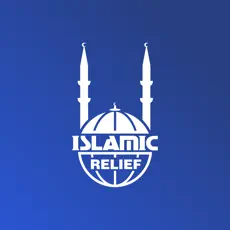Islamic Relief USA (IRUSA), headquartered in Alexandria, Virginia, is the country’s largest Islamic faith-based charity. Launched in 1993 in Los Angeles, California, IRUSA responds to natural disasters and violent conflicts, performs important sustainable development work, and advocates for a more equitable and just society.
IRUSA has been providing humanitarian assistance to Bangladesh since the 1990s and has launched projects to build resilient communities, deliver emergency relief, strengthen families, and eradicate poverty, which affects 20% of the population.
Below is a snapshot of IRUSA’s work in Bangladesh.
Flood and Natural Disaster Response
Bangladesh is an extremely wet country—it receives heavy rainfall concentrated during the annual monsoons and is frequently hit by cyclones that bring more rain, wind, and storm surges. Because most of the country occupies lowland river deltas, floods are a fact of life and a huge challenge, especially for the many Bangladeshis who depend on agriculture for their income. These smallholder families often see their farmlands inundated or washed away. Floods can also contaminate water supplies, spreading illness and further overwhelming an already poor healthcare system.
IRUSA has provided emergency relief to Bangladeshis affected by flooding, including in the aftermath of Cyclone Amphan. This particularly devastating storm hit the country and neighboring India in 2020. IRUSA responded by launching a $50,000 emergency assistance project that supported more than 3,400 beneficiaries in the Khulna District, Bangladesh, a hard-hit area where homes, roads, croplands, and shrimp and fish farms were destroyed. IRUSA’s aid included emergency shelter, non-food items, and water, sanitation, and hygiene (WASH) kits to people in need.
More recently, IRUSA responded to the severe floods that hit Bangladesh after heavy rains in August 2024. Dozens were killed. As many as 1.2 million people were displaced, driven from their homes as the waters rose, and a total of 5.7 million people required emergency humanitarian aid. Many were cut off from the rest of the country by the floodwaters, which made roads impassable. Even when the rains stopped, the threat of disease from contaminated, bacteria-laden floodwater persisted.
IRUSA quickly launched an emergency appeal for victims of the flooding. Meanwhile, its “blueshirt” volunteers—dressed in their bright blue tee-shirts and vests—were on the ground delivering aid. Cash assistance was also provided.
Humanitarian Aid for Refugees
Bangladesh is home to the world’s most densely populated refugee camp: the Kutupalong refugee camp in Ukhia, Cox’s Bazar. This area is home to 1 million refugees, most of them Muslim Rohingya refugees who left Myanmar, fleeing religious and ethnic persecution and mass violence. Conditions in the camp are poor: people live in temporary shelters, shacks, and huts crowded on hillsides. Most people are dependent on aid; there’s no real economy to speak of, and few ways to earn a living. With Bangladesh’s heavy rains, landslides are common. Fires are also a threat because the huts are so closely packed together.
A particularly devastating fire broke out on March 5, 2023, causing the homes of 12,000 refugees to go up in flames. Other buildings, including mosques, learning centers, and medical clinics, were destroyed as well. IRUSA responded by initiating an emergency response and joined with other emergency agencies to conduct a needs assessment. In addition, IRUSA helped rebuild latrines and bathing cubicles, plus provided more than 1,000 families with emergency shelter kits and assistance assembling them.
Support for Orphaned Children
Providing orphaned children with essential needs is a core component of IRUSA’s global agenda, and Bangladesh is one of the countries in which it’s particularly active in that regard. In 2022, IRUSA helped 2,032 orphaned children in Bangladesh via sponsorships that provided for healthcare, food, and education to help these youth escape poverty.
Climate Resilience
Climate resilience is a priority for IRUSA in its work in Bangladesh. The country is among those most vulnerable to climate change, according to the World Bank. The cyclones that already batter the region are expected to become more intense, while familiar monsoon patterns may become unpredictable. Bangladesh’s flat topography also means it’s susceptible to rising seas. There’s a sense of injustice in all this, since Bangladesh contributes little to climate change. This is a familiar pattern around the world: Lower-income countries tend to emit less greenhouse gasses, but bear the brunt of climate change because they lack the institutions and infrastructure to adapt.
IRUSA is helping Bangladeshis adapt to climate change through a project called Scaling-up Inclusive Climate Resilience of Vulnerable Communities through Locally Led Adaptation (ICRA). The program offers financial support, including small-amount loans without interest, to empower families and put them in a better position to withstand emergencies. The program focuses on giving people a hand up so they are better able to help themselves. Though the actual amounts given may be small, many times, that’s all people need. Read more about one of the beneficiaries of the program here.
The above projects are just a snapshot of IRUSA’s work in Bangladesh, but all are made possible by the organization’s generous donors. If you’d like to support IRUSA’s ongoing efforts in Bangladesh, go to https://irusa.org/asia/bangladesh/.
